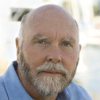Craig Venter

Craig Venter
John Craig Venteris an American biotechnologist, biochemist, geneticist, and entrepreneur. He is known for being one of the first to sequence the human genome and the first to transfect a cell with a synthetic genome. Venter founded Celera Genomics, The Institute for Genomic Researchand the J. Craig Venter Institute, and is now CEO of Human Longevity Inc. He was listed on Time magazine's 2007 and 2008 Time 100 list of the most influential people in the world. In 2010, the...
NationalityAmerican
ProfessionScientist
Date of Birth14 October 1946
CountryUnited States of America
You'd need a very specialized electron microscope to get down to the level to actually see a single strand of DNA.
The only 'afterlife' is what other people remember of you.
We are going from reading our genetic code to the ability to write it. That gives us the hypothetical ability to do things never contemplated before.
We're moving from reading the genetic code to writing it.
When you think of all the things that are made from oil or in the chemical industry, if in the future we could find cells to replace most of those processes, the ideal way would be to do it by direct design.
If anything, we've learned that we don't think this data's going to be as deterministic as was previously thought, ... There is even more need for this legislation until science catches up with our collective ignorance.
The pace of digitizing life has been increasing exponentially.
How we understand our own selves and how we work with our DNA software has implications that will affect everything from vaccine development to new approaches to antibiotics, new sources of food, new sources of chemicals, even potentially new sources of energy.
I have a blend of klotho gene variants that have been linked with a lower risk for coronary artery disease and stroke and an advantage in longevity.
Fred Sanger was one of the most important scientists of the 20th century.
Carole Lartigue led the effort to actually transplant a bacterial chromosome from one bacteria to another.
Cells will die in minutes to days if they lack their genetic information system. They will not evolve, they will not replicate, and they will not live.
We can now diagnose diseases that haven't even manifested in the patient, and may not until the fifth decade of life - if at all.
You can imagine: 99 percent of your experiments fail for one reason or another.